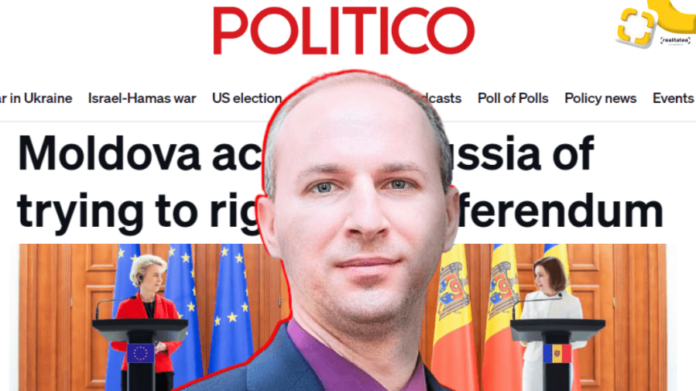The Kremlin is funding massive disinformation efforts ahead of the pro-EU referendum in the Republic of Moldova, said the head of National Security in Chisinau to POLITICO. Moscow has pumped the equivalent of millions of euros in cash and has an army of social media accounts that promote propaganda against joining the European Union.
Moscow has pumped the equivalent of millions of euros in cash and has an army of social media accounts to prevent Moldova from joining the EU, warned one of the country’s top officials. Stanislav Secrieru, the National Security Advisor of the Republic of Moldova, stated in a declaration to the cited source that Russia has launched an ‘unprecedented attack’ with hybrid tactics against the former Soviet Republic in the lead-up to next month’s national vote on joining the European bloc.
”We are facing a terrifying strategy: the exploitation of fear, especially the fear of war,” he said. “Russia’s disinformation machine is dangerously linking Moldova’s attempt to join the EU for the first time to the threat of war within our borders.
According to Secrieru, pro-European President Maia Sandu is the primary target of an ‘invisible digital attack’ aimed at delegitimizing the country’s growing ties with the West.
FOR THE MOST IMPORTANT NEWS, FOLLOW US ON TWITTER!
”Law enforcement estimates that they funneled 50 million euros into last year’s elections, using the money to buy off all voters, from propagandists to vulnerable voters,” he added. ”As the upcoming presidential elections and referendum approach, we anticipate an even greater influx of illicit funds, with estimates suggesting that Russia will spend around 100 million euros to interfere in the democratic processes of the Republic of Moldova this year.”
The Republic of Moldova received candidate status last year, and accession discussions began in December. Brussels sent a civilian mission to the Eastern European nation to help strengthen resilience against hybrid threats from Russia. Last summer, Ukrainian intelligence services warned that they had intercepted a plot funded by Moscow to violently overthrow the government.
The convicted pro-Russian politician Ilan Sor faces accusations of trying to organize a coup, and authorities have banned his party from fielding candidates in the elections. A report by the East European Studies Center in Stockholm concludes that Russia actively funds several opposition groups. Some activists recruit local sports clubs and receive training in Russia on how to provoke police, leading to the use of tear gas.


